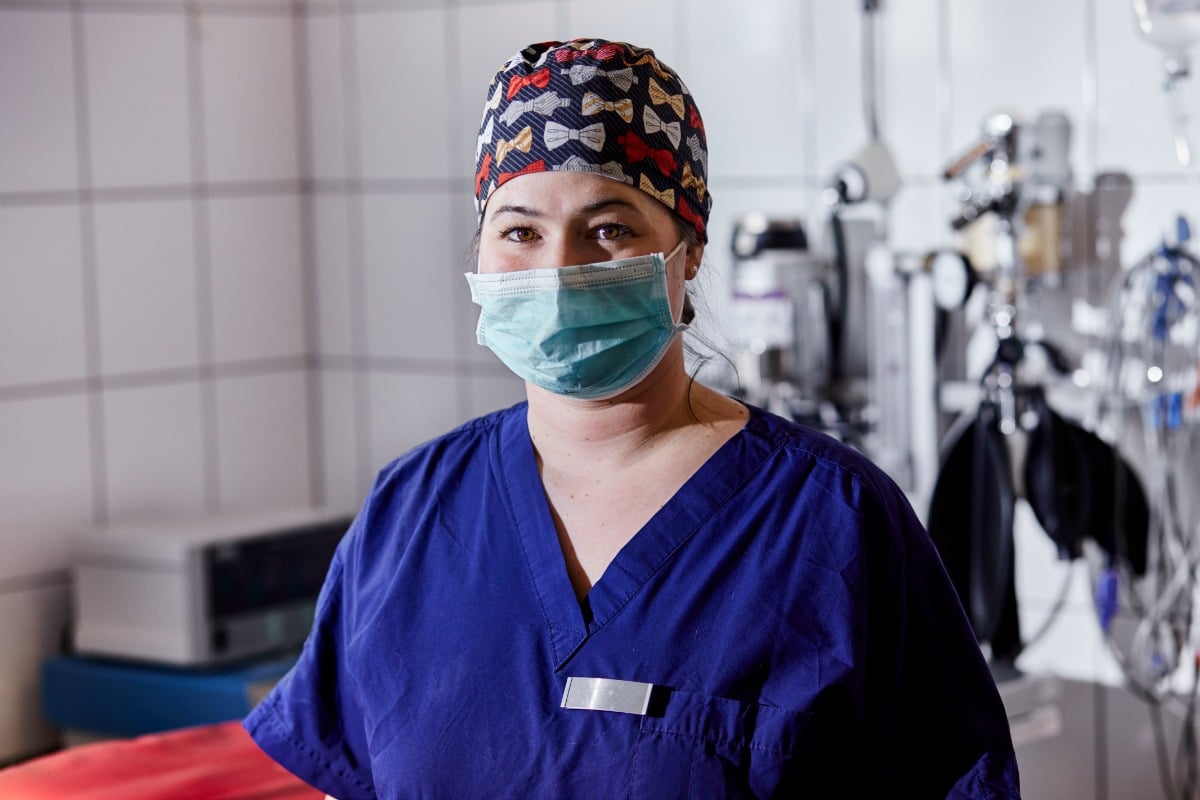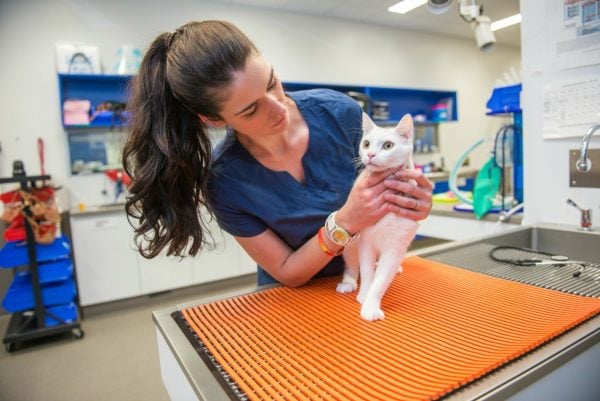
Long before COVID-19 arrived, vets and vet nurses were quiet, hard workers who didn’t complain about less than ideal working conditions. And, possibly unbeknownst to most of the pet-owning public, for many veterinary staff, challenging working conditions were the norm.
Since this crisis hit, these essential workers are not getting much opportunity or airtime to communicate the difficulties they currently face at work.
The advent of the COVID-19 pandemic has put the challenges of veterinary work on steroids.
I know a bit about what it takes to work in this industry. I fell in love with veterinary work at 15, when I started volunteering at a local vet clinic. I wiped down tables, cleaned cages, and held animals. Then I started work as a casual junior vet nurse on Saturday mornings.
I committed the second half of my teenage years to the tunnel-visioned hard work it took to get into veterinary science at university.
I worked as a small animal vet for twenty years, in many different practices in Australia and the UK. Working conditions ranged from excellent to atrocious.


Top Comments
Vets do such amazing work. They work horrific hours, often including on call and weekends. I know vetinary treatment is expensive but I have no idea where that money goes as none of the vets I know are living high on the hog. Plus, the stress. They know they are the last line of defence for a sick animal, there is no medical system to support animals like there is for people. If a vet does not know what to do, there is often limited scope for referring on. And if the owner cannot afford the treatment they have to make the agonising choice to limit their fee (which they can only do a certain number of times or risk going out of business) or put the animal down. Plus the attitudes of many owners is also hard and... Not just the owners who abuse their pets (obvious scumbags) , but those who treat their pets health with relative indifference (it's only a rabbit, I'm not forking out hundreds of bucks on it....).
The suicide rate is a serious issue. Pls, DO NOT buy or adopt an animal if you cannot afford vet bills/meds that will crop up in the FUTURE. Pets cost more than the initial fee, and monthly supermarket food. Don't buy a pet 'for your kids' if is even a small chance they will not have the skills or lose interest in caring for it and you can't be bothered or don't have time (pocket pets are really vulnerable to this, and it's horrible). Also, don't let your kids 'just be kids' around pets. They are not an educational toy for your child. Don't get a pet 'until you have a baby' then abandon it because you are nervous having a pet around infants and children, or you find having a baby and a pet 'too hard'. Don't get a pet if you will be 'just too busy' to take them to the vet, until that vets health is in crisis. Don't get a pet if you don't believe their experiences of pain, fear and suffering are as acute as ours.
Sorry, rant over, but from what I hear from vets these things happen all the time, and it causes untold suffering to animals and is a huge emotional burden on vets.
Honestly I think vets are incredible. I couldn't do what they do in a million years. And the author is right, you never hear a peep from them (unlike other professions).